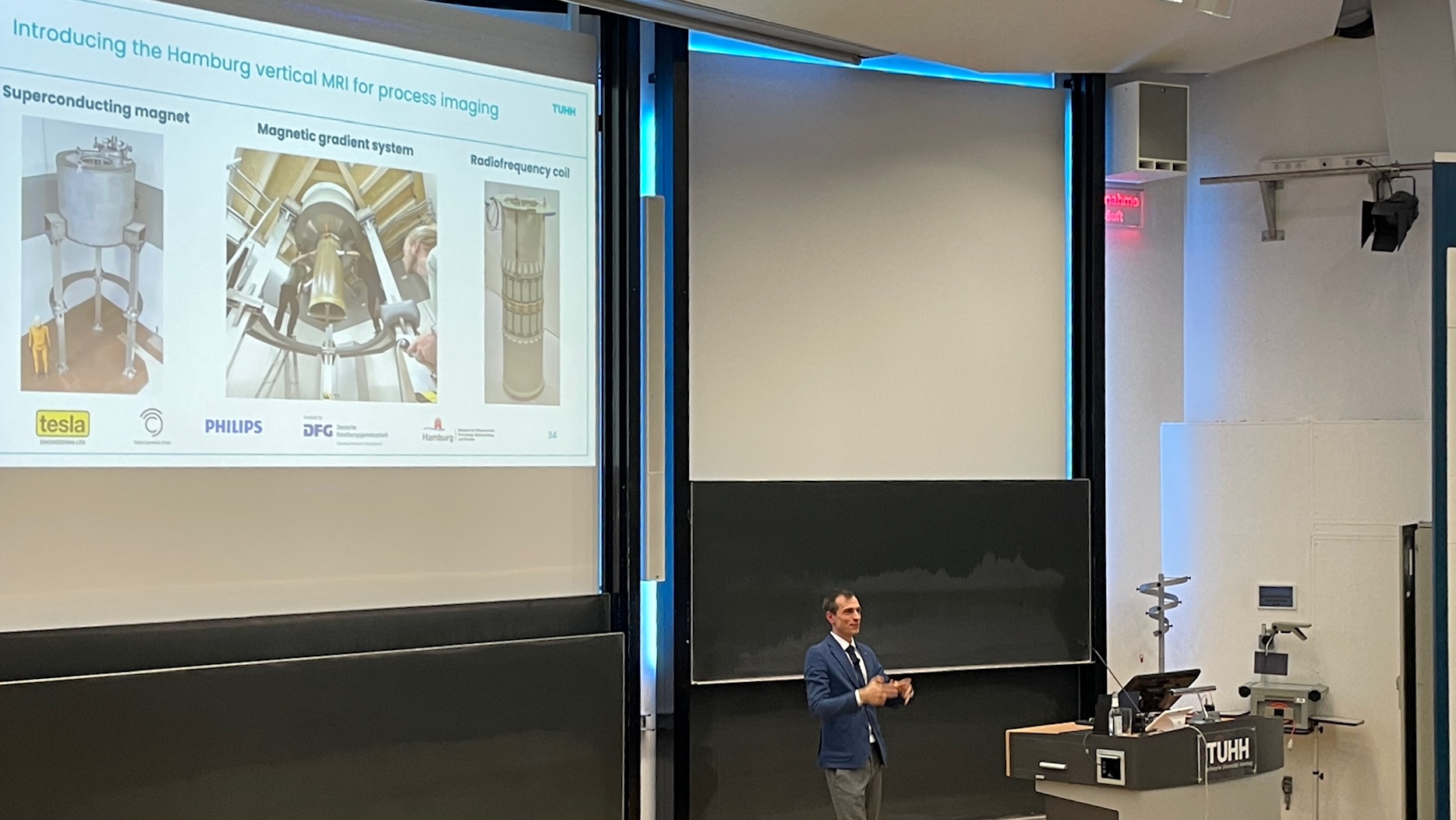In his presentation, Prof. Penn will show how magnetic resonance imaging (MRI) can be applied to the field of chemical and bioengineering. In addition, he will introduce the novel vertical MRI system located at TUHH. Magnetic Resonance in Chemical and Bioengineering: The reduction of greenhouse gas emissions is one of the central challenges of humanity in the 21st century. This includes the transition from fossil to renewable resources, the introduction of a circular economy, and an increase in the energy efficiency of our society. Innovations in chemical and bioengineering can contribute to addressing this challenge, such as the development of smart reactors that can reliably function even with fluctuating energy availability and raw material qualities. In these reactors, for example, biodegradable polymers can be produced as a replacement for the currently used plastics. The basis for the development of such innovative reactors is detailed knowledge of the chemical and physical processes occurring inside them, such as the distribution of raw materials and products, their flow velocities, and temperatures. However, the conventionally used probes introduced into reactors for measuring these variables provide either no or very limited spatial resolution and therefore incomplete information. In this presentation, Alexander Penn demonstrates that magnetic resonance imaging (MRI) offers the possibility of obtaining all thuses information non-invasively from the inside of reactors. Despite the widespread use of MRI in medicine, the technology is relatively underutilized in engineering. One reason for this is that currently available MRI systems are horizontally oriented for lying patients and do not accommodate the typically vertical reactor geometries in chemical and bioengineering. At the Institute for Process Imaging at TU Hamburg, in collaboration with various MRI hardware manufacturers and scientists from different international universities, a globally unique, two-story, vertical MRI system has been developed in recent years to address this gap. This system enables the spatially resolved and real-time measurement of the complex internal processes of reactors, thus significantly contributing to research and development in the field of chemical and bioengineering.

